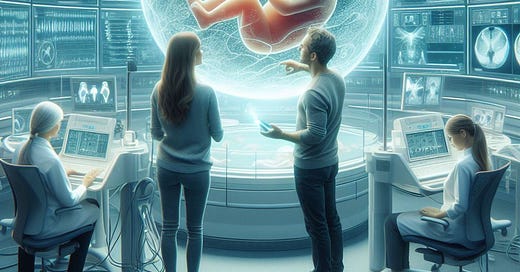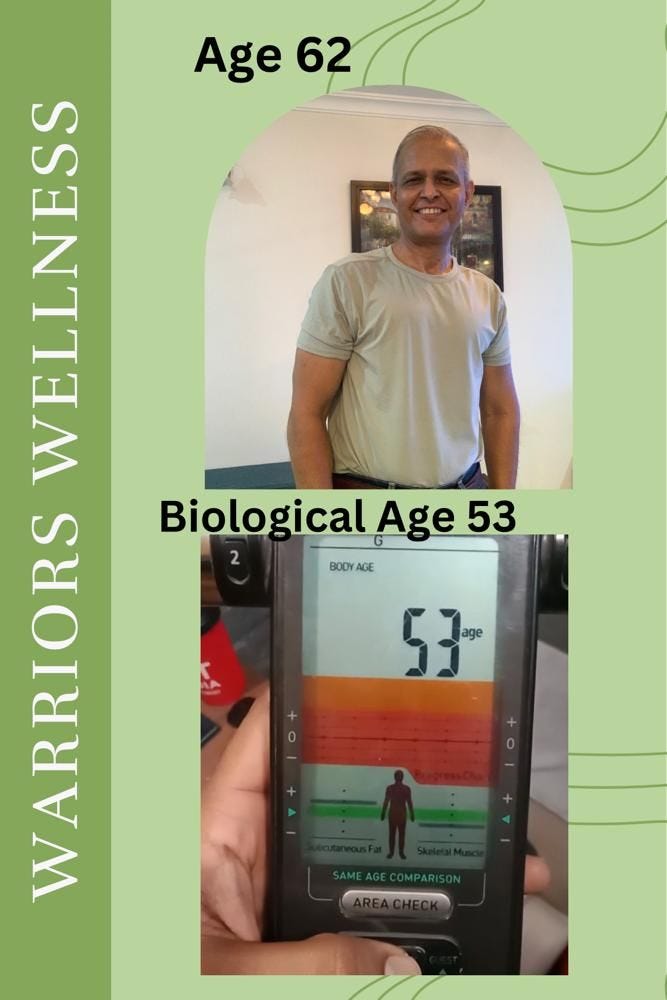Right to Choose
How soon does human agency begin? Should we allow designer babies? It’s time to take The Sniff Test.
The Bathroom Bribe
Ian studied PPE at Oxford. He was open about how fortunate he was to be there and it was rumoured that the new bathrooms came courtesy of his father. If so, it’s hardly the biggest bribe ever paid to a university.
Is this wrong? We all want the best for our children. Paying for nursery, music lessons and football club are acceptable in the pursuit of a better life. Private schools and tutors meet with less approval, while bribing your way into college is a no-no. It still happens.
Who did Ian harm? Presumably the person who would have been the 13th member of our college cohort. It’s hard to prove though and they were already a marginal selection. Not that the selection worked well, as another student was sent home after the first year. But she was foreign and may have been there through a different, more acceptable favour.
Ian’s privilege is small compared with the benefits your child gets from doing extra curricular activities when others cannot. These advantages come earlier in life when they have more impact and give a leg up over far more people. Ian squeezed one unfortunate into the Russell Group. Even with a knock on down the chain, the number of lives impacted was minimal. Compare that to the overall advantages of an affluent family and you have more in common with Ian than you think.
The Postcode Lottery
We advantage our offspring from birth. Over 90% of children in England receive three doses of the 6-in-1 vaccine. Protecting them against diphtheria, tetanus, polio, whooping cough, flu and meningitis is common sense.
Caring parents read to their children. Studies show just having books around the house is an advantage. Research with German school children revealed the presence of books was more important than the parents’ occupation and education. Mariah Evans of the University of Nevada-Reno, confirmed the correlation between books in the home and higher test scores in all 42 countries she studied.
Even if we cannot afford private school many of us fuss over where our children study. A 2015 survey showed 10% of parents in the UK considered schools a very important factor in choosing where to live. A study three years later noted this percentage increases in line with parental income, which affords a greater ability to choose.
We hear a lot about the postcode lottery in healthcare. It also exists in education. This map shows the share of the population entering higher education. The darker the colour the more people attend university. As a nation we are pale around the edges.
Up until very recently the trend was for more people to have tertiary education. The data shows a clear advantage in terms of future income for those attending university. Forget the nonsense about dropouts making the most successful entrepreneurs. This is a Silicon Valley myth designed to make aliens seem normal. “Dropping out” of Stanford means taking time out to start a company. There is an option to return if you fail.
We spend the whole time our children are growing trying to confer advantage on them. This involves serious commitments of time, emotion and money. Financial support does not stop there and may continue after we die.
Governments do things to redress the balance, but the map above shows they generally fall short. Family trumps community and more money beats less. Democratic politicians do little to change this.
Given the success of all these measures, why would we stop there. Increasingly you don’t need to.
The AI Advantage
One use of artificial intelligence that predates ChatGPT is the selection of embryos during in vitro fertilisation (IVF). There is debate about whether the technology does this better than humans, but it will given time.
Selection means finding embryos that are most likely to survive a successful pregnancy. The likelihood that IVF fertilisation results in a healthy birth declines with age. It falls from around one third for women up to 34, down to 4% for those aged 43-50. The midpoint age of mothers in the UK is 31, three years older than thirty years ago. The average age of IVF patients is 36. If AI increases their chances, surely it should be used.
The chance of conception for healthy couples in peak reproductive years is thought to be 20-30% per menstrual cycle. This is cited in fertility education rather than research papers. It is thought that couples without fertility issues have an 80-85% chance of conceiving in a year. But fertility issues would prevent success, so a high number is expected. The qualification “without fertility issues” sounds like medical professionals covering their backsides. It’s reasonable to assume most couples get pregnant within a year of trying.
The success rates for IVF rise with the more rounds a woman undertakes. In the UK the first cycle has a 29% success rate rising to 43% after six cycles. This might take two years, but there are physical, emotional and financial restrictions on a woman’s ability to have IVF. At best it appears that success rates are around one quarter of natural methods. This is unsurprising given couples undertake IVF only after conventional conception fails.
In the UK, the National Institute for Health and Care Excellence (NICE) recommends three cycles per patient. That means for those who qualify for treatment on the NHS. Private practice costs £5,000 or more per cycle and has fewer restrictions on attempts.
IVF is a means of helping those struggling to have children to conceive. Doctors strive to improve the results and reduce the side effects. Artificial intelligence is of great assistance in achieving those ends. It makes sense to have the machines pick an embryo for us.
Selecting for Strength
I have zero knowledge of the conditions that determine whether an embryo makes it to term. I imagine the vitality required persists once born and might signal a degree of athletic ability. If we are selecting for strength, why not be specific. Perhaps the bulk of a rugby player, the flexibility of gymnast, or the torque of a golfer.
Why stop at sports. Maybe we identify musical genes, or those that favour intelligence or creativity. At the least shouldn’t we gift our children determination and enthusiasm. What about happiness and the ability to love. Athleticism sounds easiest, but where there’s a will there’s a way.
The opposition to this usually stems from a belief that it’s not natural. There was similar pushback when I wrote about longevity and using science to extend our lifespans. Yet this is becoming more common and having a biological age below your calendar age is something to boast about on social media.
Is it natural to use antibiotics when we fall ill? What about taking more vitamins than a normal diet provides. We might say electric lights that make nights out exciting are unnatural. All of these things are enabled by scientific progress.
Scientific knowledge advances with conjectures about how the world works, followed by a test of the theory and eventually proof and acceptance. The time span from idea to knowledge may be decades. The original theory and early experimentation feel wrong to many because they are a significant break with familiar and accepted practices.
Maybe you know a doctor who is against embryo design. So what? Doctors are no more guardians of ethics than economists or statisticians.
Perhaps this sounds too much like the eugenics of the Nazis? But the concentration camp methods were about limiting the ability of particular people to breed. This included marriage restrictions, forced sterilisation and around 250,000 people murdered by doctors under the Action T4 euthanasia programme. There was some attempt to have tall, blue-eyed and blond people marry each other, but that’s a long way from designer babies.
Nature versus Nurture
To me, the selection of characteristics for your child is the natural progression of science rather than something radically left field. It’s likely to lead to a higher demand for IVF even among couples able to conceive conventionally. I’d expect it to be banned, the ban to be circumvented and the idea gradually to become mainstream. Religious communities will be most resistant, but they always resist anything threatening the authority of their leaders. Finally they figure out how to live with change.
Parents have a strong say in a child’s cultural ties. These are as diverse as a religion conferred by birth, or allegiance to a football club, which is not. As a society, we are comfortable with this level of parental and community persuasion.
Parents are less successful determining a profession for their children, although I know doctors and lawyers who might disagree. Pushy parents more commonly want their children to do everything, rather than having a specific outcome in mind. As a society we respect an individual’s right to choose. We honour a person’s agency.
There are issues with designing embryos. By selecting for athleticism or musical talent we might be denying a desire to do something different. When does a person’s agency begin? Is it at conception or birth. There are parallels with the abortion debate.
Furthermore, we do not yet understand what makes someone clever or musical. Is it nature or nurture and how much of each. Embryo selection gives the upper hand back to nature, after we’ve spent millennia wrestling it away through the development of societies.
If people are good at sports they are more likely to pursue them as a career. Our genes are giving us an advantage that shapes our life choice. But is it right that someone else should make that life choice for us, even if it is well-intentioned parents.
No one knows what will unfold over a lifetime. Maybe golf will become a joke and the millions currently poured into tempting elite athletes to make fake expressions of loyalty will be a waste of money. Maybe that money will be what makes golf less attractive.
If so, parents selecting genetic attributes for offspring designed to give them a good golf swing will have done few favours to their child. The golf genes may have squeezed out something else that would have served them better. Ian is no longer a hapless PPEist but a pointless golfer.
Or does society develop based on the skills of its members. If there are a lot more skilled golfers maybe golf becomes more important. These are questions that don’t have answers at present.
Leaving a Legacy
Herein lies the problem. Scientific advances are relatively rapid compared with ethical debates. They also have psychological effects that are known only with hindsight.
There is a case for restricting embryo design. Not that it is morally wrong – whose morals – but we don’t know what we leave out when we include certain genes. We are unclear when agency begins and we do not know its psychological effects. Imagine being bred to play football and not making it. If a lot of people are bred that way you probably will fail.
None of this will prevent embryo selection, which is already with us. It is a short step to pre-selecting characteristics for children. As pushy parents are a given there is likely to be significant demand for the science of selection. Our children will be the ones to deal with the consequences.








